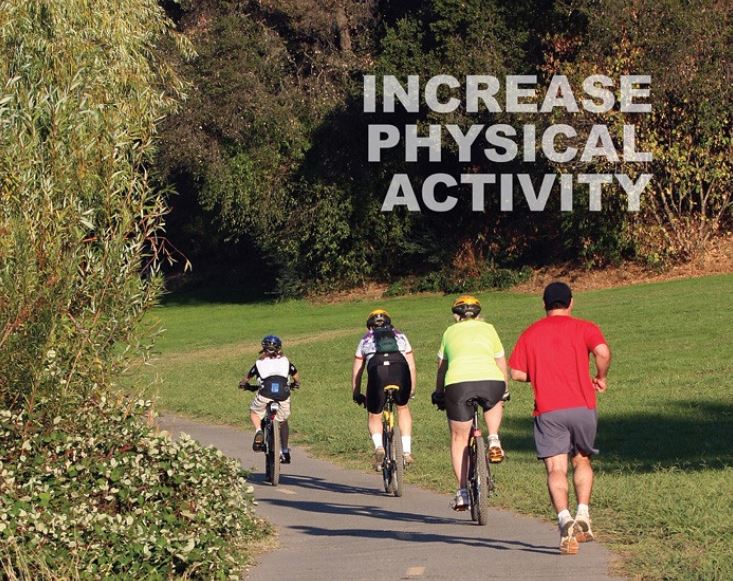
EXTOD Adults with Type 1 Diabetes: delivered by EXTOD and organised by SBK Healthcare. This unique forum was created to provide interactive tools, clinical cases, shared learning and problem/solution-based tasks for adults who exercise regularly and would like support with managing their diabetes.
Case study led workshops, practical learning and useful resources
Delivered by EXTOD, this one day event was designed for adults with T1D who are looking to manage their exercise choices confidently and safely.
This dedicated day equipped all participants with practical tools and techniques needed to overcome diabetes and exercise challenges.
Case study led workshops, practical learning and useful resources
Key learning outcomes on the day included:
- Understanding the effects of different types of exercise on blood glucose levels
- Applying the rule of threes for managing glucose around exercise
- Optimising on the tips and tricks with nutrition and exercise
- Identifying how your diabetes technology will support your exercise safely
- Practical engagement with the strategies to plan for exercise
Building your understanding of diabetes and exercise
In this engaging environment, attendees were able to pose questions to the experts, take part in useful discussions and benefit from practical group learning.
- Receive invaluable guidance on glucose control through diet, exercise and insulin changes
- Develop your understanding of the continuous glucose monitors the pump or closed loop you use
- Network with fellow people with T1D who exercise to share your challenges and solutions
- Leave the day armed with online materials, confident in your ability to safely undertake exercise
Meet your sponsors
SBK Healthcare would like to thank Abbott, Medtronic, Medtrum and Insulet, maker of Omnipod for sponsoring this unique forum.
With thanks to Breakthrough T1D for supporting this educational conference:

Breakthrough T1D, the leading global type 1 diabetes charity, works every day to help people live better with the condition, prevent people ever developing it and one day, find cures.
| 8.30 |
Registration and arrival refreshments
|
| 9.00 |
Welcome
Professor Rob Andrews, Associate Professor, University of Exeter and Honorary Consultant Physician, Somerset NHS Foundation Trust
|
|
The audience will be split into smaller workshops led by two experts in the field of diabetes and exercise, who will use interactive tools, clinical cases, shared learning and problem-based tasks to help attendees to learn. These groups will stay together for the whole day and complete 4 workshops across the day. Facilitators for the day
Topics covered will include:
|
|
| 9.15 |
Workshop 1: Physiology at rest and during exercise
|
| 11.00 |
Refreshment break
|
| 11.20 |
Workshop 2: Strategies for before and during exercise
|
| 1.05 |
Lunch break
|
| 2.00 |
Workshop 3: Physiology after exercise
|
| 3.30 |
Refreshment break
|
| 3.45 |
Workshop 4: Strategies for after exercise
|
| 5.15 |
Closing remarks
|
| 5.20 |
Close of day
|
Presenters
Evidence based content delivered by members of the EXTOD faculty, plus additional speakers who are all experts in T1D and exercise:

Giorgio Carrieri
Lead Nurse, Children's Diabetes Team
Somerset NHS Foundation Trust

Claire Foster
Diabetes Dietitian
Somerset NHS Foundation Trust

Manyee Li
Specialist Diabetes Dietitian
Queen Elizabeth Hospital
Andrea Miller
Diabetes Dietitian
Swansea Bay University Health Board
Past attendee feedback
Exercise for Type 1 Diabetes (EXTOD) was set up in 2011, and regularly provides structured education programmes to support safe exercise for people with Type 1 diabetes. This bespoke education series has been well received by both Healthcare Professionals, adults with T1D and carers. Here are just a few quotes from HCPs who experienced the 2023 and 2024 conferences held in Oxford and Bristol:
Adding their unique perspective, we were pleased to welcome our industry partners
Abbott’s Diabetes Care Division is committed to helping people manage their diabetes and achieve their best health outcomes with innovative technology, such as the FreeStyle Libre 2 system.

Medtronic innovate solutions that treat more than 70 health conditions, from Parkinson’s to diabetes. Their healthcare technologies transform the lives of two people every second.

Insulet Corporation, is an innovative medical device company dedicated to simplifying life for people with diabetes. The Omnipod DASH® System and in the future the Omnipod 5® System, are an alternative to traditional insulin delivery. With its simple, tubeless and waterproof* design, the Pod provides up to 3 days of continuous insulin delivery. *The Pod has a waterproof IP28 rating for up to 7.6 m for 60 min
Medtrum is dedicated to simplifying the management of diabetes. We develop and deliver medical devices that aim to meet the needs of people with diabetes and create tools to support healthcare professionals whilst exploring the frontiers in artificial pancreas research.
With thanks to our conference supporter
SBK Healthcare would like to thank Breakthrough T1D for their continued support.

Breakthrough T1D, the leading global type 1 diabetes charity, works every day to help people live better with the condition, prevent people ever developing it and one day, find cures.
Would you like to sponsor a conference?
Why sponsor? Our role at SBK Events is to bring industry together with healthcare professionals so that you can educate and inform your audience. These trail-blazing diabetes delivery forums offering dedicated presentation, Q&A, networking and discussion time, each sponsor will be full immersed into the event and able to effectively engage with your NHS audience.
Interested in having your own event, managed by us?
SBK Events also provides in-house forums. Working closely with you as the client we can research, produce, market and deliver the conference or online forum that best suits the audience and meets your goals.
Reach out today
If you would like more information on our sponsorship options an in-house forum or if you wish to discuss your needs and what solutions may be appropriate for your business, please contact:
Sarah Kemm
Contact: 01732 897788
Email: sarah.kemm@sbk-events.co.uk
Recommended levels of activity
Shown below is the recommended levels of activity for adult, children and pregnant women with Type 1 diabetes.
| Adults |
|
Children |
|
| Pregnancy |
|
How active are people with Type 1 DM
Most
studies of physical activity (PA) levels in adults with Type 1 diabetes
have been based on self-reported data rather than objective data. They
all suggest that people with Type 1 diabetes are not very active.
Self-reported studies
- A retrospective analysis of the Diabetes and Complications Trial found 19% of (271/1441) participants were not achieving recommended PA levels (see - Effects of physical activity on the development and progression of microvascular complications in type 1 diabetes: retrospective analysis of the DCCT study).
- In the EURODIAB prospective cohort study of 2185 people with Type 1 diabetes from 16 European countries, 786 (36%) patients were doing no or only mild PA (see - Association of physical activity with all-cause mortality and incident and prevalent cardiovascular disease among patients with type 1 diabetes: the EURODIAB Prospective Complications Study).
- In the Finnish Diabetic Nephropathy Study, 23% of people with Type 1 diabetes were classed as sedentary and a further 21% were doing less than one session of exercise per week. (see - Physical Activity and Diabetes Complications in Patients With Type 1 Diabetes. The Finnish Diabetic Nephropathy (FinnDiane) Study).
- In a cross sectional study of 18028 patients with Type 1 diabetes in Germany and Austria 63% of participants reported doing no regular PA (see - Impact of Physical Activity on Glycemic Control and Prevalence of Cardiovascular Risk Factors in Adults With Type 1 Diabetes: A Cross-sectional Multicenter Study of 18,028 Patients).
Objectively measured PA
- In a Canadian study of adults with Type 1 diabetes only 43% of women and 55% of men with Type 1 diabetes were active (see - Physical activity level and body composition among adults with Type 1 diabetes).
- In a UK study of adults with Type 1 diabetes, adults with Type 1 diabetes undertook 37 mins per day of moderate to vigorous physical activity compared to 52.9 mins per day in healthy matched controls. (see - Objective Measurement of Physical Activity in Adults With Newly Diagnosed Type 1 Diabetes and Healthy Individuals).
The reasons for the reduced level of physical activity could be due to that additional barriers that people with Type 1 diabetes have to physical activity.
Patients with Type 1 diabetes have many barriers to exercise that are similar to the general populations such as
- Lack of time
- Work pressures
- Bad weather
- Cost
- Lack of motivation
But there are certain barriers that are specific to them, see table below.
Table showing barriers to physical activity in patients with Type 1 diabetes.
| New onset Type 1 diabetes | Established Type 1 diabetes |
|
|
To be able to increase activity these barriers will have to be overcome.
For more information on this subject see
- Brazeau A.S et al paper (Barriers to Physical Activity Among Patients With Type 1 Diabetes. Diabetes Care. 2008;31(11):2108-9).
- Dubé MC et al paper (Development and validation of a new scale. Diabetes Research and Clinical Practice. 2006;72(1):20-7).
- Lascar N et al paper (Attitudes and Barriers to Exercise in Adults with Type 1 Diabetes (T1DM) and How Best to Address Them: A Qualitative Study).
- Kennedy A et al paper (Attitudes and barriers to exercise in adults with a recent diagnosis of type 1 diabetes: a qualitative study of participants in the Exercise for Type 1 Diabetes (EXTOD) study).
Please login to access documentation associated with the event. This is an exclusive benefit for all of the attendees and includes additional and updated documentation.














